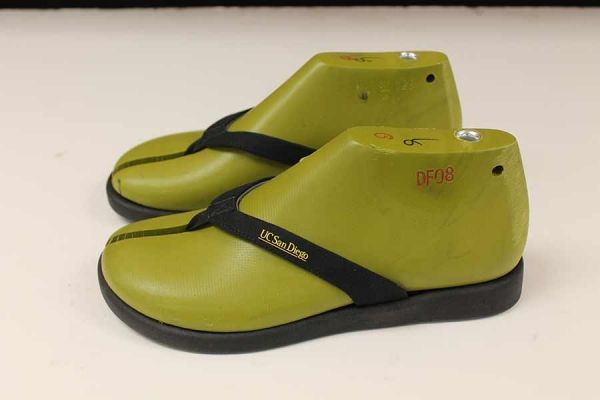As the world’s most popular shoe, flip-flops account for a troubling percentage of plastic waste that ends up in landfills, on seashores and in our oceans. Scientists at the University of California San Diego have spent years working to resolve this problem, and now they have taken a step further toward accomplishing this mission.
Sticking with their chemistry, the team of researchers formulated polyurethane foams, made from algae oil, to meet commercial specifications for midsole shoes and the foot-bed of flip-flops. The results of their study are published in Bioresource Technology Reports and describe the team’s successful development of these sustainable, consumer-ready and biodegradable materials.
The research was a collaboration between UC San Diego and startup company Algenesis Materials—a materials science and technology company. The project was co-led by graduate student Natasha Gunawan from the labs of professors Michael Burkart (Division of Physical Sciences) and Stephen Mayfield (Division of Biological Sciences), and by Marissa Tessman from Algenesis. It is the latest in a series of recent research publications that collectively, according to Burkart, offer a complete solution to the plastics problem—at least for polyurethanes.
Read more at University Of California - San Diego
Photo: Commercial-quality biodegradable flip-flops. Photo courtesy of Stephen Mayfield, UC San Diego.


